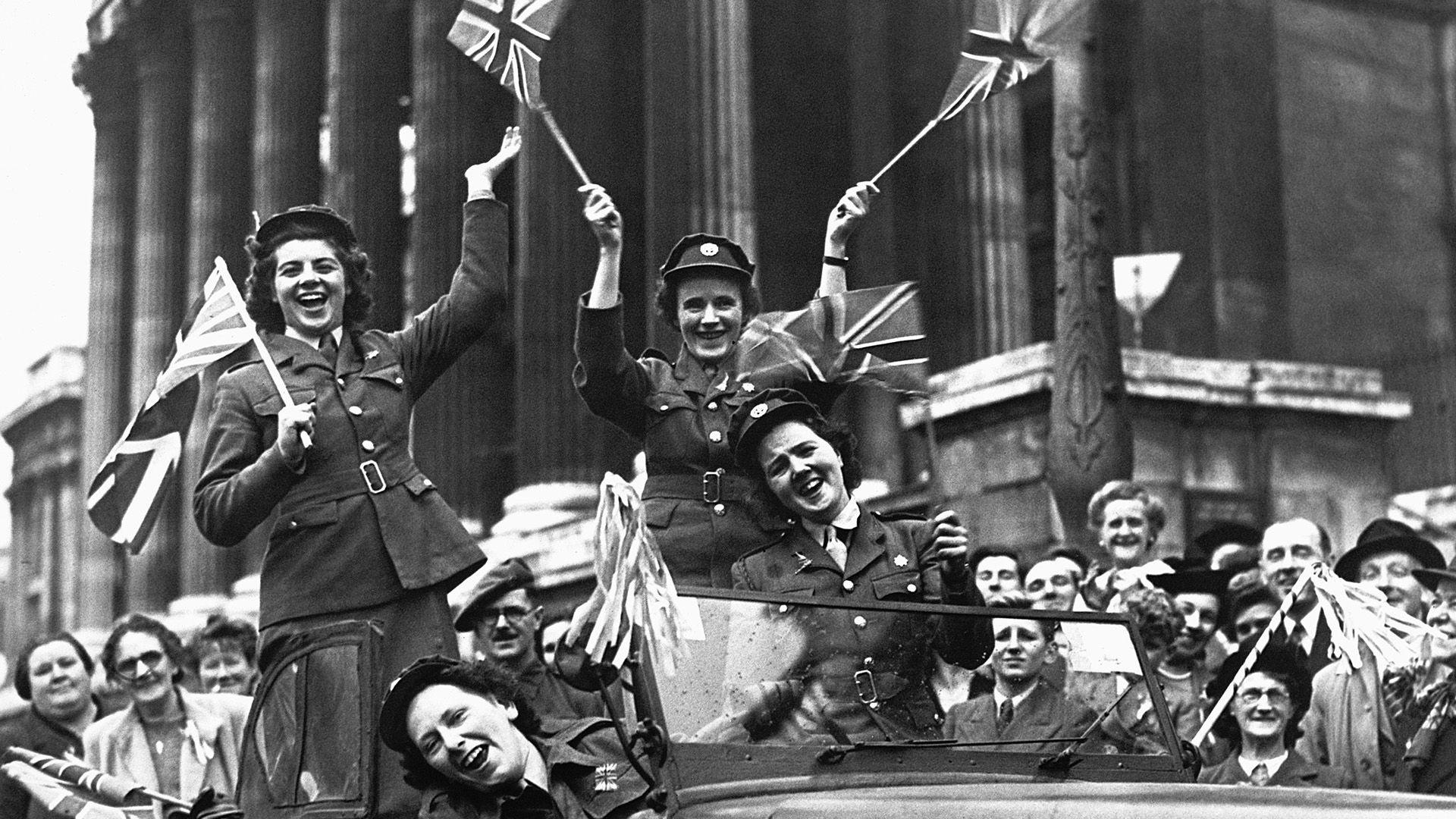'I'm no hero, they're still out there'
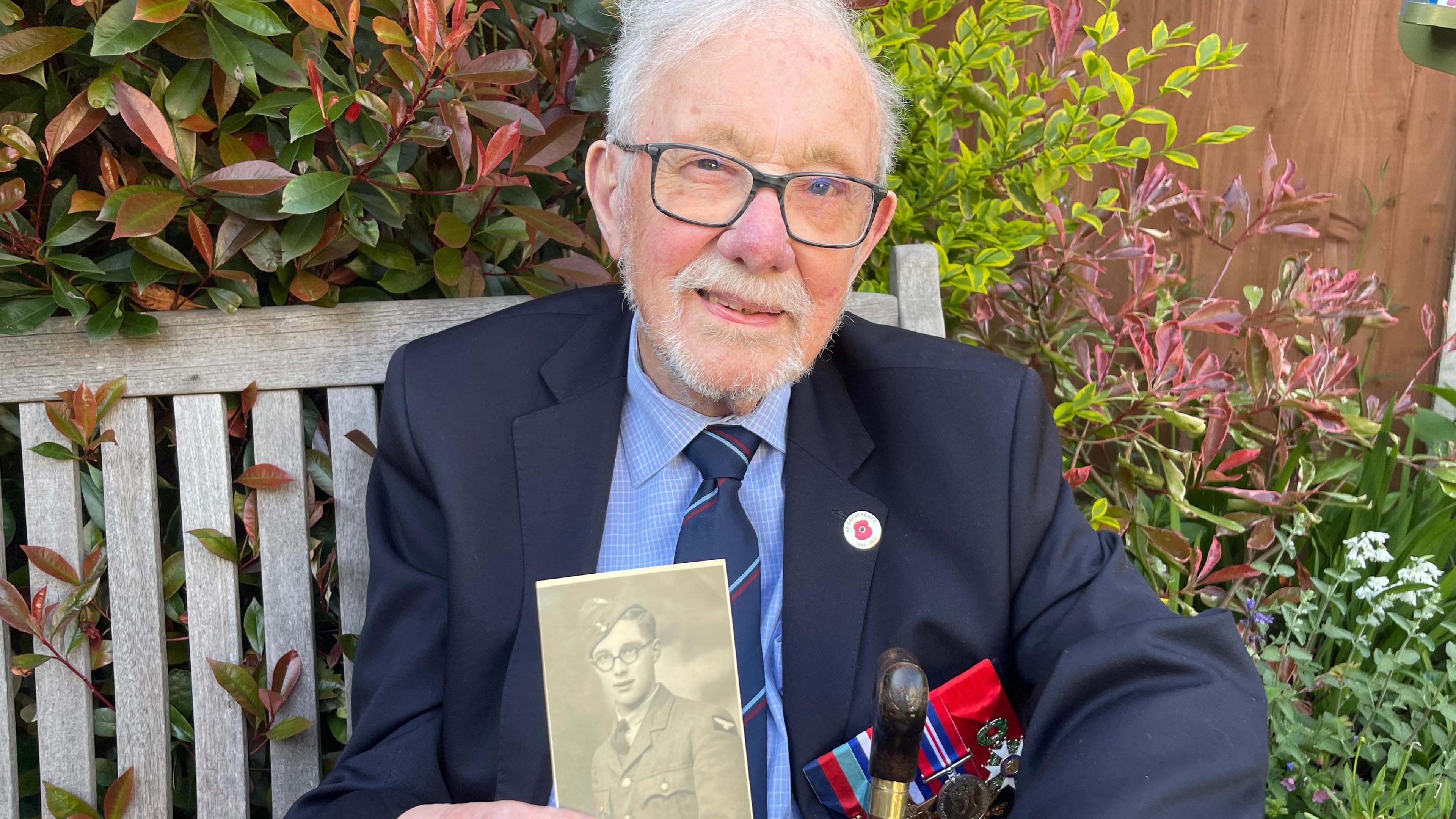
Alan Kennett was a mechanic working on Spitfires
- Published
"I was in a cinema watching a film and this jeep came blasting through the doors with an officer announcing there was peace in Europe."
Alan Kennett, who has been reflecting on events in 1945, formally started the military procession of 1,300 members of the armed forces in London on Monday as part of events marking the 80th anniversary of VE Day.
The 100-year-old World War Two veteran from Sutton Coldfield was in the RAF, but did not fly. He was a mechanic working on Spitfires.
Mr Kennett said: "In my youth, I worked with a chap who was a motor mechanic and he said 'you want to get in the aircraft side, because that's the future'."
He was in a landing craft transporting vehicles to France.
"When we went up on deck at Gosport, Portsmouth, all you could see was these little boats bobbing in the water (before D-Day), like you do on the films, all going across to France.
"When we arrived in France, we got stuck on the sand banks and had to wait for the tide to go out. We then drove the vehicles off the boat and onto dry land, without getting wet."
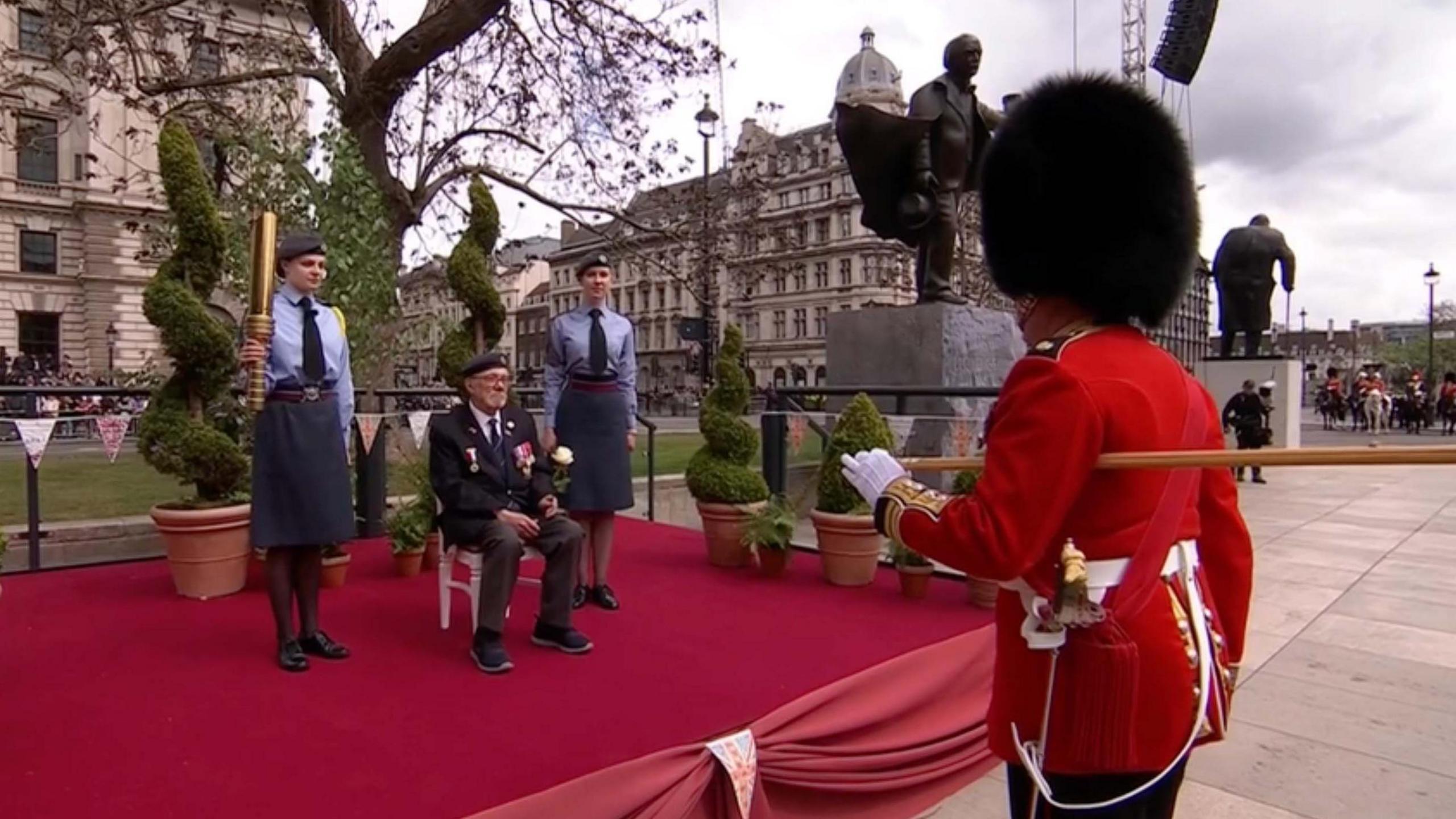
Mr Kennett formally started the military procession of 1,300 members of the armed forces who marched through London on Monday
Not long after the closing of the Falaise Gap in Normandy, when Allied forces surrounded German troops, he met his father, a soldier, in a chance encounter.
"One of the lads came over and said 'there's this bloke looking for you' and the next minute my father come in.
"He said that 'you blokes (Spitfires), you've made a mess off of Falaise', meaning the town centre. That wasn't us, though. That was the heavies (bombing planes)."
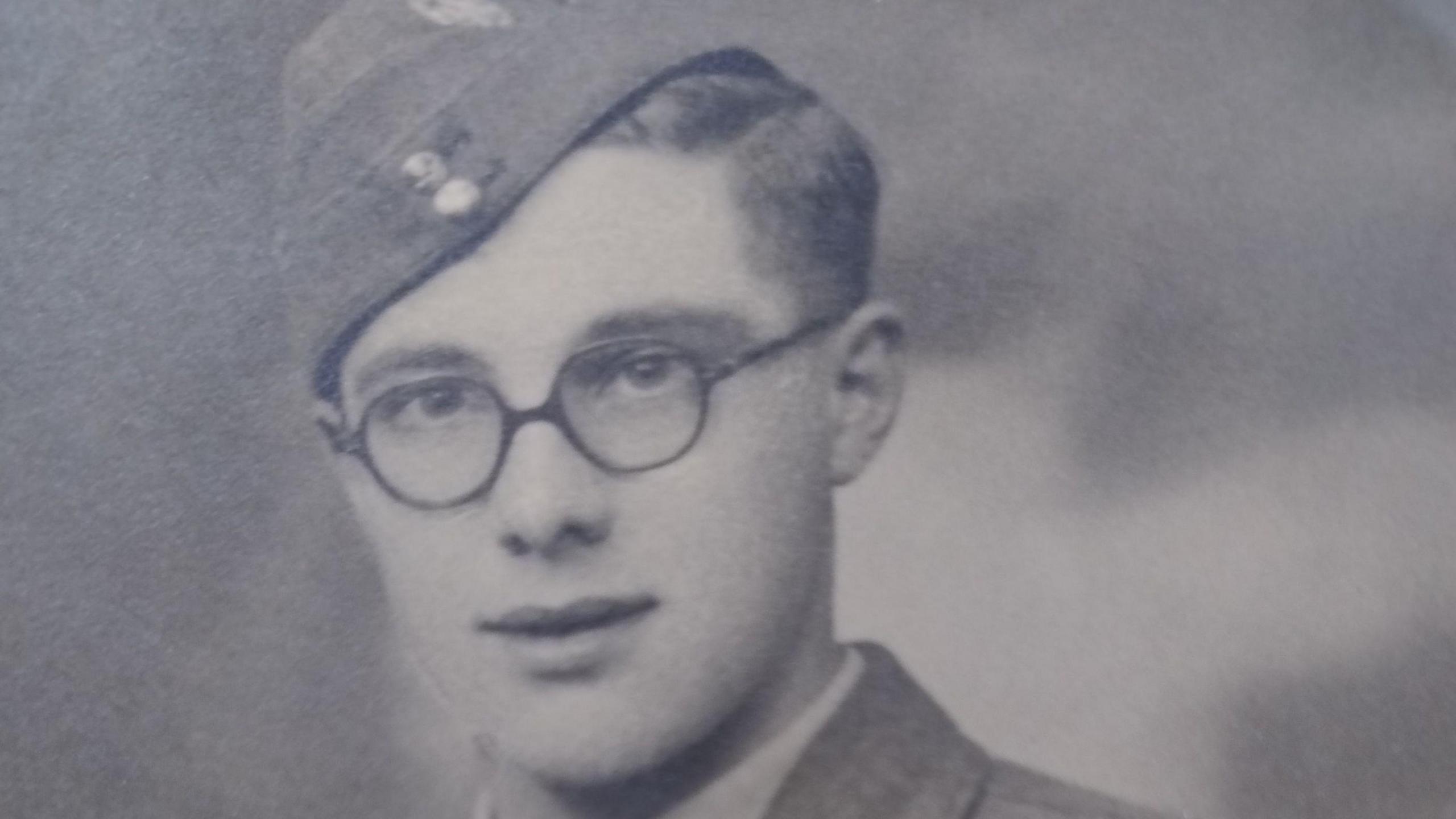
The World War Two veteran from Sutton Coldfield was in the RAF
VE Day did not bring an end to all of the fighting. The war in the Pacific did not conclude until September 1945.
Mr Kennett's war did not end on VE Day either, as he was sent to Norway to ensure German troops surrendered.
"Ten days' leave and next thing I was up in Aberdeen, ready to be shipped out to Norway and that was an experience I enjoyed."
Reflecting on his own contribution, he felt it was a "job" he was doing, whereas those who died deserved the most recognition, he said.
"I suppose when I look at the world today, I think, what was it all for?
"I don't consider I'm a hero. They're still out there."
Get in touch
Tell us which stories we should cover in Birmingham and the Black Country
Follow BBC Birmingham on BBC Sounds, Facebook, external, X, external and Instagram, external.
Related topics
- Published5 May
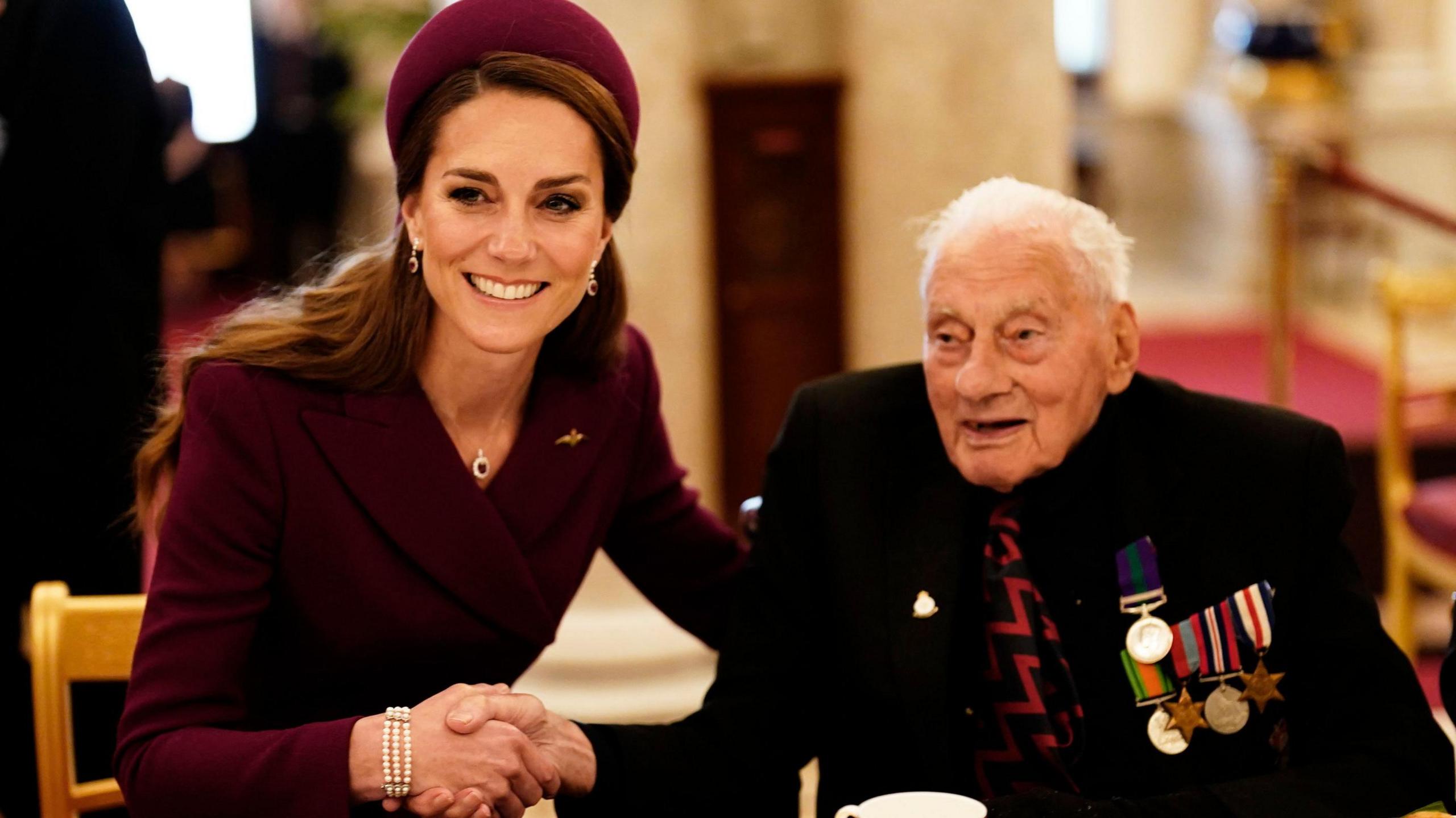
- Published5 May
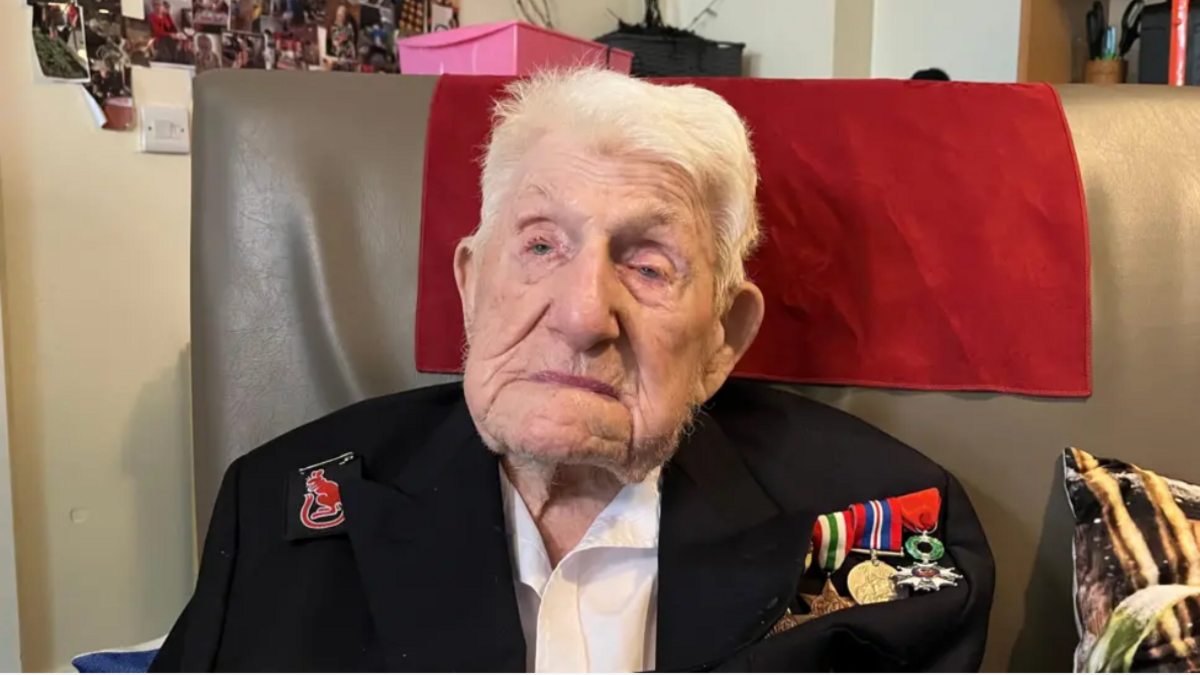
- Published6 May
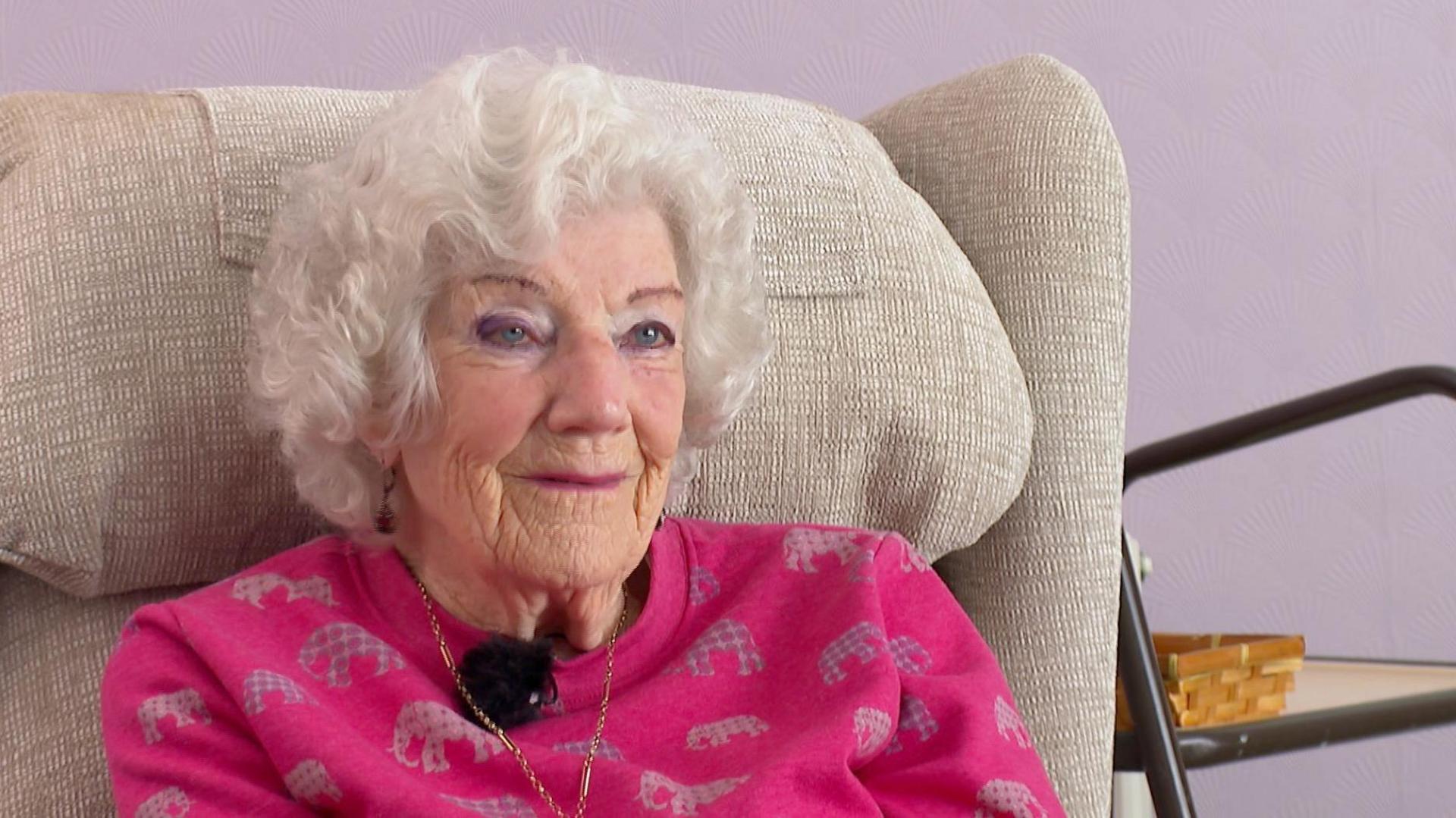
- Published2 May
